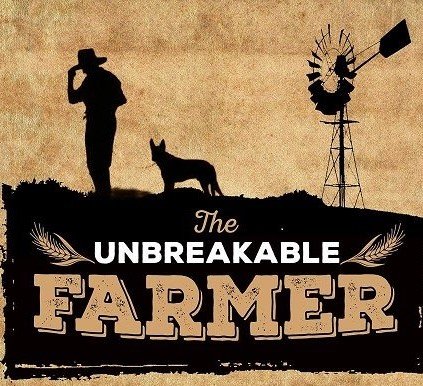The Power of Storytelling in Rural Mental Health
Mental health in rural, regional, and remote Australia is a conversation we need to keep having. The challenges isolation, financial pressures, tough times on the land, and a culture of just getting on with it can make it hard for people to reach out for support.
But there’s one thing that can cut through all that storytelling.
Why Storytelling Matters
Storytelling is one of the most powerful ways to connect with people, break down stigma, and encourage open conversations. In the bush, we might not always have access to mental health services, but we’ve always had each other. And that’s why sharing our stories is so important.
Here are ten reasons why storytelling is a game changer for mental health in the country.
1. It Breaks the Silence
For too long, mental health has been a taboo subject, especially in rural Australia. Blokes, in particular, have been raised to believe they should “tough it out” and not talk about their feelings. But when someone speaks up, it gives others permission to do the same. It’s the first step towards breaking down the stigma.
2. It Builds Connection
Rural communities thrive on mateship and connection. Sharing personal experiences helps create a sense of belonging and reminds people they’re not alone. A good story can be the spark that encourages someone to open up and have an honest conversation.
3. It Normalises the Struggles
Life on the land has highs and lows, droughts, floods, financial stress, family pressures. When we talk openly about these challenges, it sends a clear message: struggling doesn’t mean you’re weak it means you’re human.
4. It Encourages Help-Seeking
Too many people in rural areas suffer in silence because they think no one will understand or that help isn’t for them. But when they hear someone they respect talk about reaching out for support, it can change their whole perspective. It shows that getting help isn’t a last resort it’s a sign of strength.
5. It Overcomes Isolation
Living in the bush can be isolating, both physically and emotionally. Not everyone has easy access to mental health services, but stories whether shared at the local footy club, in a shearing shed, or online, can bridge that gap. A story heard at the right time can be a lifeline.
6. It Creates Role Models
When respected people in the community share their struggles, it gives others permission to acknowledge their own battles. Whether it’s a farmer, a small business owner, or a footy coach, their story can inspire others to speak up and seek help.
7. It Passes Down Wisdom
In the country, we’ve always learned from each other. Wisdom isn’t just about knowing how to run a farm or fix a fence it’s also about knowing how to navigate life’s challenges. Sharing personal stories helps pass on valuable lessons about resilience, coping, and finding support.
8. It Speaks to Hard to Reach Groups
Traditional mental health messages don’t always land well in rural communities. But a raw, real life story, told in plain language, can cut through. It’s easier to relate to someone who’s been in your boots than to a textbook or a statistic.
9. It Highlights the Gaps
Real stories can shine a light on the cracks in the system. They show where mental health services are lacking, where people are slipping through the cracks, and what needs to change. Personal experiences can drive better policies, funding, and resources in the bush.
10. It Helps the Storyteller Too
Telling your story isn’t just about helping others it’s also about healing yourself. Sharing your struggles out loud can be incredibly powerful. It helps you process your own journey and take control of your story, rather than letting it control you.
My Own Story – The Unbreakable Farmer
I know first-hand how powerful storytelling can be.
I didn’t set out to be a mental health advocate I was just a bloke trying to navigate life’s challenges. I faced setbacks, battled depression, and struggled with my sense of purpose. For years, I bottled it up, thinking I had to deal with it on my own.
But the truth is, none of us have to do it alone.
When I finally opened up and shared my story, something incredible happened. Instead of judgement, I was met with understanding. Instead of being seen as weak, people told me they related to my struggles.
That’s how The Unbreakable Farmer was born.
Since then, I’ve shared my journey with farmers, business owners, and communities across the country. And time and time again, I’ve had people come up to me after a talk and say, “I thought I was the only one.”
That’s the power of a story. It lets people know they’re not alone, that it’s okay to struggle, and that there is always hope.
The Road Ahead
In the bush, we pride ourselves on being tough. But true toughness isn’t about bottling things up it’s about knowing when to speak up and when to ask for help.
If you’ve got a story to tell, don’t be afraid to share it, it might just be the lifeline someone else needs to hear.
And if you’re struggling, know this: you are not alone. There’s always someone willing to listen.
Let’s keep the conversation going.
